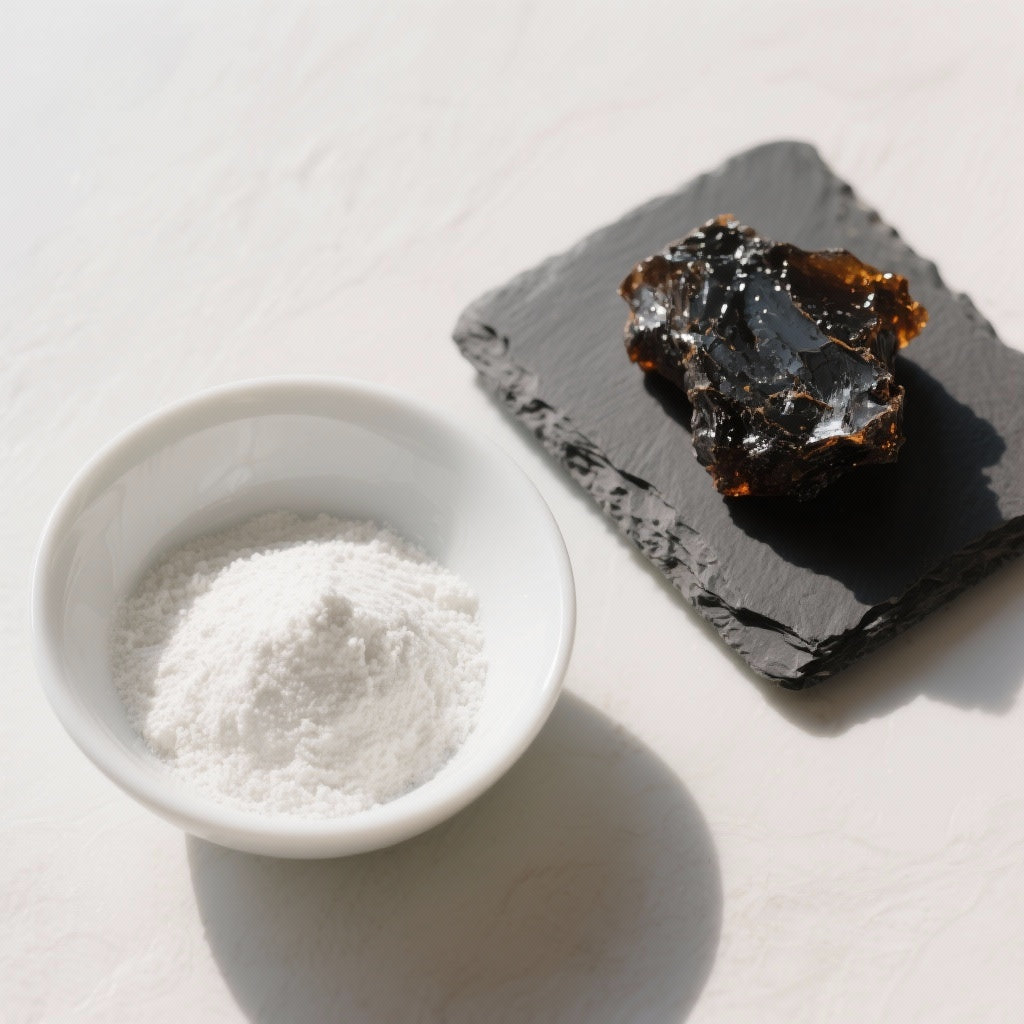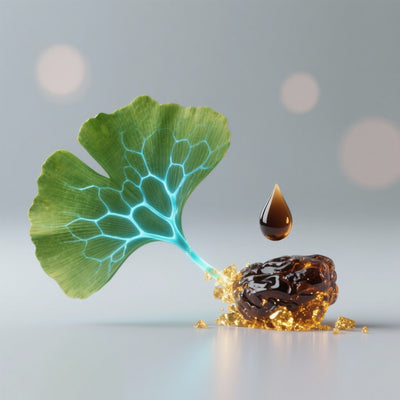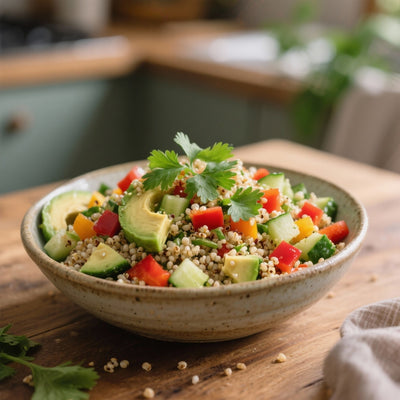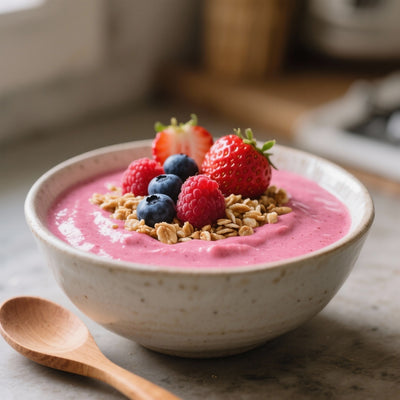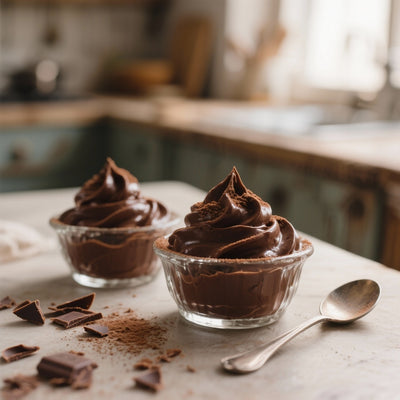Shilajit vs. Collagen: Which to choose (or should they be combined) for firmer skin?
The quest for firm, smooth, and youthful-looking skin is universal. In a market flooded with promises, two names stand out: Collagen , the well-established superstar of nutricosmetics, and Shilajit , an ancient treasure from the Himalayan mountains that is rapidly gaining popularity. The question then arises: which one is your skin's true ally?
Must you choose between the structural approach of collagen and the holistic regenerative power of Shilajit? Or does the real magic lie in their combination? This article goes beyond marketing claims to dissect the science, compare the mechanisms of action, and provide you with a clear guide to making the best choice for your skin.
Understanding Collagen: The Pillar of Our Skin
Before comparing them, it's essential to understand why collagen is so fundamental. Think of it as the invisible framework that supports your skin's structure, giving it strength, elasticity, and firmness.
The structural role of collagen in the body
Collagen is the most abundant protein in the human body. It not only forms the matrix of the dermis, but is also an essential component of bones, tendons, ligaments, and cartilage. For the skin, a dense and healthy collagen matrix means a plump, wrinkle-free appearance.
Why does our collagen production decrease?
From the age of 25, our natural collagen production begins to decline by about 1% per year. This process is accelerated by several factors in our modern lifestyle:
- Sun exposure (photoaging): UV rays actively degrade collagen fibers.
- Sugar and processed foods: They cause a phenomenon called glycation, which stiffens and weakens collagen.
- Stress and lack of sleep: Cortisol, the stress hormone, has a catabolic effect on collagen.
- Smoking: It reduces blood flow to the skin and hinders collagen synthesis.
This progressive degradation is the direct cause of the appearance of fine lines, wrinkles and sagging skin.
Collagen supplements: a rebuilding approach
Collagen supplements, usually in the form of hydrolyzed collagen peptides , work on a simple yet ingenious principle. These small chains of amino acids are easily absorbed by the body. Their presence in the bloodstream acts as a signal, telling skin cells (fibroblasts) that collagen has broken down and that it's time to produce more. It's a direct approach: providing the building blocks to encourage reconstruction.
Shilajit: Black Gold from the Mountains for Cellular Vitality
If collagen is the building material, Shilajit is the architect and master builder. Less well-known in the Western beauty world, this organo-mineral compound has been used for millennia in Ayurvedic medicine for its ability to rejuvenate the body at a cellular level.
What exactly is Shilajit?
Shilajit is a mineral-rich resin that flows from the rocks of high mountains, particularly the Himalayas. It is the result of the very slow decomposition of plant matter over centuries. Its composition is extraordinarily rich, containing more than 84 minerals in ionic form, but its true power lies in its high concentration of fulvic acid .
"Fulvic acid is nature's super-carrier. It has the unique ability to chelate minerals and transport them directly into cells, while also helping to eliminate toxins." – Dr. Anish Sharma, Ayurvedic Medicine Expert
How does Shilajit affect skin health?
Shilajit doesn't directly provide collagen. Its action is more fundamental and holistic. It creates the optimal environment for your body to not only produce its own collagen efficiently, but also to protect it.
- Antioxidant Protection: It neutralizes free radicals responsible for oxidative stress, one of the main culprits in collagen degradation.
- Optimizing Cellular Energy: Shilajit has demonstrated its ability to improve mitochondrial function. Cells full of energy (ATP) are more efficient at repairing themselves and producing proteins like collagen.
- Improved Nutrient Absorption: Thanks to fulvic acid, it helps your cells better absorb other nutrients from your diet, including amino acids needed for collagen synthesis.
- Anti-inflammatory properties: It helps modulate low-grade chronic inflammation, another factor that accelerates skin aging.
Head-to-Head: Shilajit vs. Collagen
Now that the basics are laid, let's directly compare these two powerhouses to determine their place in your anti-aging routine.
Mechanism of Action: Direct vs. Fundamental
Collagen: Provides the building blocks (peptides) and signals the body to produce more collagen. This is a direct supplementation strategy .
Shilajit: Does not provide collagen but optimizes cellular function , protects existing collagen, and improves the body's ability to synthesize it. It is a fundamental support strategy .
Primary Target
Collagen: Highly targeted at connective tissues – skin, hair, nails, joints. The benefits are often visible in these specific areas.
Shilajit: Systemic action. The benefits are felt on overall energy, mental clarity, hormonal balance and detoxification, which is secondarily reflected on skin health.
The Verdict for Firmness
Collagen is potentially faster for targeted results in hydration and the reduction of fine lines. Shilajit works deeper to build long-term resilience, addressing the root causes of aging at the cellular level.
Unity is Strength: The Synergy of Shilajit and Collagen
The question may not be "which one to choose?" but rather "why not combine them?". The combination of Shilajit and collagen creates a powerful synergy for skin health, where each component amplifies the effects of the other.
Imagine you are building a house. Collagen represents the bricks and cement. Shilajit is the team of expert workers and the energy that powers their tools, ensuring that each brick is perfectly laid and that the structure is protected from the elements.
How does this synergy work?
- Supply & Absorption: You provide your body with collagen peptides (the building blocks).
- Transport & Use: The fulvic acid in Shilajit helps transport these amino acids and other essential minerals into the fibroblasts.
- Energy & Production: Shilajit boosts the energy (ATP) of these cells, giving them the fuel needed to efficiently assemble these building blocks into new collagen fibers.
- Protection & Longevity: The antioxidant properties of Shilajit protect this new collagen structure from degradation by free radicals.
This dual-action approach is undoubtedly the most comprehensive strategy for combating sagging skin and promoting lasting firmness.
Frequently Asked Questions (FAQ)
Which is better for deep wrinkles, Shilajit or Collagen?
For deep wrinkles, which result from significant structural loss, the combination of the two is ideal. Collagen helps to "fill" the structure from within, while Shilajit ensures that the repair process is as effective as possible and prevents future deterioration.
Are there any side effects to be aware of?
Collagen is generally very well tolerated. For Shilajit, it is essential to choose a pure source that has been lab-tested for the absence of heavy metals. Poor-quality Shilajit can be counterproductive. It is not recommended for people suffering from hemochromatosis (iron overload).
How can I incorporate Shilajit and Collagen into my routine?
It's very simple. Collagen powder is tasteless and can be added to your coffee, smoothie, or even a glass of water. Shilajit resin dissolves easily in warm (not boiling) water and is often taken in the morning for an energy boost. For ideas, check out our recipe blog .
At what age should I start?
It's never too early for prevention. Starting in your late twenties or early thirties can help significantly slow down the first signs of aging. However, it's never too late to begin, as these supplements can help improve skin quality at any age.
